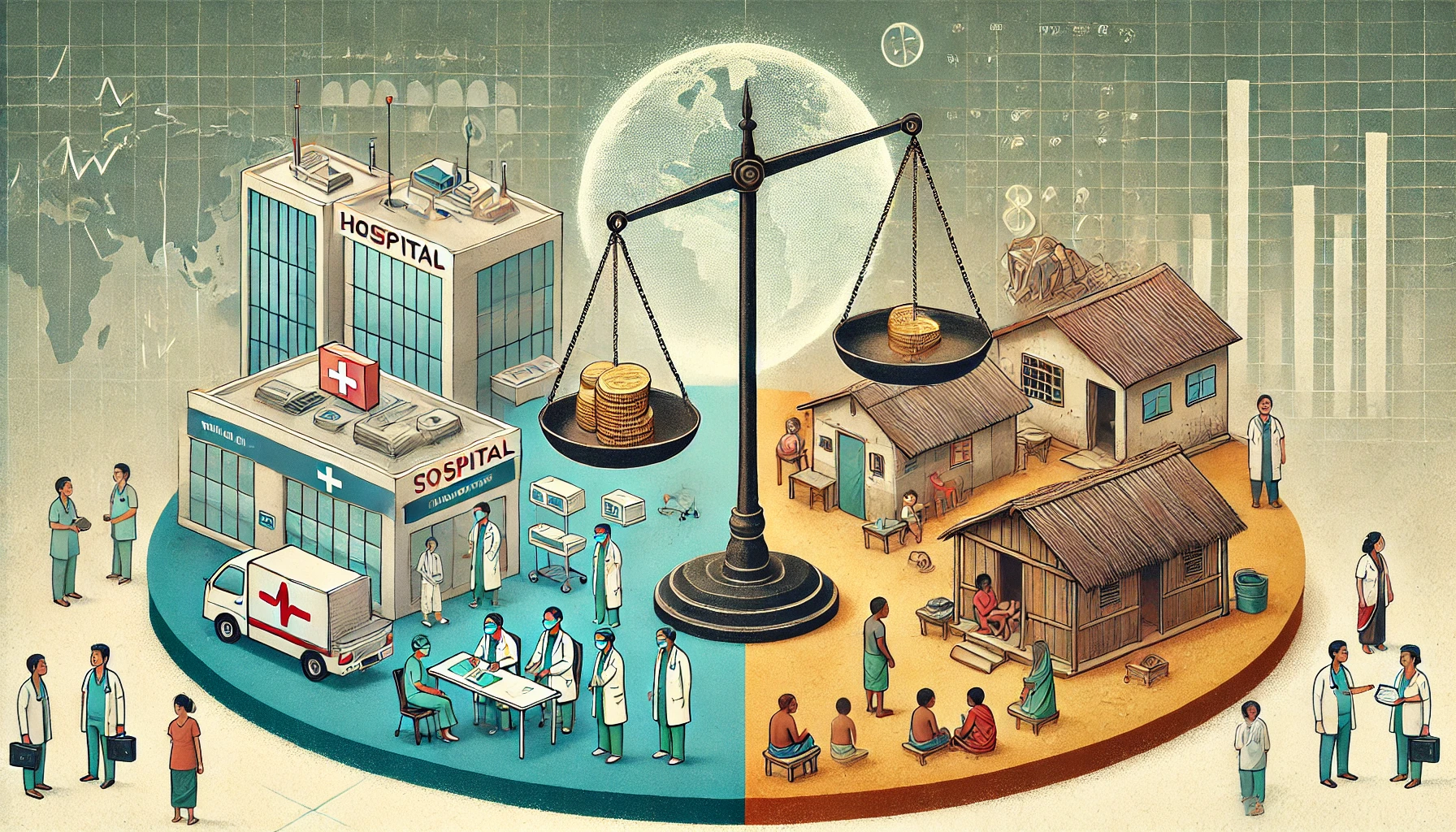Out-of-Pocket Costs and Health Equity: Navigating UHC in East Asia Amid a Pandemic
The World Bank’s study highlights stark disparities in healthcare access and financial protection across Cambodia, Vietnam, Thailand, and Indonesia during COVID-19, with the pandemic exacerbating inequities in out-of-pocket expenses and utilization. Tailored health policy reforms are essential to achieve equitable and resilient healthcare systems in the region.

The World Bank’s Health, Nutrition, and Population Global Practice conducted an in-depth analysis of financial protection outcomes in Cambodia, Vietnam, Thailand, and Indonesia during the COVID-19 pandemic. This study, focusing on healthcare access and out-of-pocket (OOP) expenditures, reveals the region's varying progress toward Universal Health Coverage (UHC). Thailand stands out with its Universal Coverage Scheme, achieving 99.5% insurance coverage and maintaining OOP spending at just 9% of total health expenditure. Its redistributive, tax-funded healthcare system has significantly reduced financial hardship and ensured equitable service access. Cambodia, however, lags behind, with only 41% of its population insured and one of the highest OOP rates in the region at 55%. Vietnam has made strides with 91% coverage through its Social Health Insurance scheme but continues to face high hospital-related OOP costs. Indonesia’s Jaminan Kesehatan Nasional (JKN) program aims for near-universal coverage by 2024, yet limited public revenue and reliance on private contributions have created financial protection gaps.
The Pandemic’s Amplification of Healthcare Inequities
The COVID-19 pandemic exacerbated pre-existing vulnerabilities in healthcare access, particularly among the uninsured and economically disadvantaged. In Cambodia, healthcare needs declined sharply, from 9.6% to 6.5% between 2019 and 2021, with uninsured individuals most affected. Indonesia also experienced a substantial drop in healthcare service utilization, emphasizing barriers related to access and affordability. Vietnam presented an anomaly, with foregone care decreasing among the bottom 40% of its population during the pandemic, possibly due to targeted policy interventions or behavioral changes. Meanwhile, Thailand’s UHC system maintained healthcare utilization levels among wealthier groups, but disparities persisted for lower-income populations. Across all four nations, the wealthiest 20% of spenders accessed healthcare at stable or increased rates, highlighting inequities in service utilization during the crisis.
Varied Patterns of Out-of-Pocket Expenditures
OOP expenditures offered a stark view of financial strain across the four countries. Cambodia and Vietnam reported reduced OOP spending, likely linked to decreased healthcare utilization during the pandemic rather than improved financial protection. In Cambodia, high reliance on private healthcare providers exacerbated financial burdens despite insurance coverage. Conversely, OOP spending rose in Indonesia and Thailand, particularly among insured and wealthier groups. In Indonesia, preferences for branded medications and services outside JKN’s coverage drove costs higher. Thailand’s OOP increases, despite its comprehensive UHC policies, pointed to gaps in outpatient and preventive care coverage. These trends underscored the critical need for reforms to expand insurance benefits and address uncovered services.
Financial Hardship and Geographic Disparities
Financial hardship due to healthcare costs revealed stark disparities, particularly for lower-income groups. Cambodia faced persistent challenges with catastrophic health expenditures, while Thailand’s wealthier segments saw rising OOP spending during the pandemic. Vietnam demonstrated a rare positive trend, with reduced financial hardship indicators such as catastrophic and impoverishing health expenditures, reflecting improved equity during the crisis. Indonesia’s mixed results highlighted vulnerabilities in its public health financing system, which struggled to fully shield low-income groups from economic shocks. Geographic disparities were evident across all four nations, with rural areas in Cambodia and Vietnam reporting higher rates of foregone care. Thailand and Indonesia also displayed significant regional variations in healthcare spending and access, further emphasizing the need for tailored strategies to bridge urban-rural divides.
Policy Recommendations for Strengthening Health Systems
The World Bank’s findings underscore the urgent need for region-specific health policy interventions. In Cambodia, expanding the Health Equity Fund and reducing reliance on private healthcare services could alleviate financial burdens for the uninsured. Vietnam should focus on enhancing primary care services and reducing dependence on hospital-based care, ensuring equitable access for underserved populations. Indonesia’s JKN program requires efficiency improvements, targeted subsidies, and expanded preventive care services to reduce OOP costs. Thailand, despite its strong UHC model, must address coverage gaps in outpatient and preventive care and ensure equitable cost-sharing across income groups. The pandemic has revealed the importance of robust public health financing systems, with tailored strategies essential for building resilience against future health crises.
Building Resilient and Equitable Health Systems
This comprehensive analysis highlights the critical disparities in healthcare access and financial protection in East Asia, amplified by the COVID-19 pandemic. The varying success of UHC policies in Cambodia, Vietnam, Thailand, and Indonesia reflects diverse challenges and opportunities for reform. Policymakers must prioritize equitable health financing, expand insurance coverage, and strengthen public health systems to reduce financial barriers for underserved populations. The findings emphasize the importance of adaptive, targeted strategies to bridge socio-economic and geographic disparities, ensuring no one is left behind in the pursuit of UHC. As these nations navigate the post-pandemic recovery, addressing these gaps will be crucial for fostering more inclusive and resilient health systems.
- FIRST PUBLISHED IN:
- Devdiscourse
ALSO READ
Mexico's Diplomatic Dance: Balancing Sovereignty and Cooperation Amidst U.S. Threats
Trump Halts Second Wave of Attacks Amid U.S.-Venezuela Cooperation
In The Loop: Bridging Tradition and Technology in 'Humans in the Loop'
Russian Troops Seize Control in Zaporizhzhia
Trump Cancels Second Wave of Attacks on Venezuela Amid Cooperation










